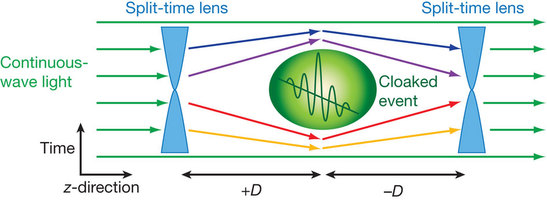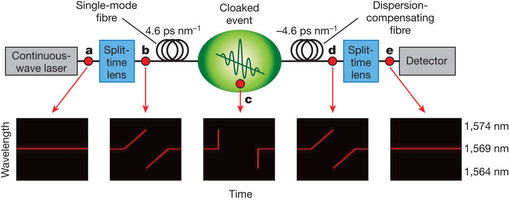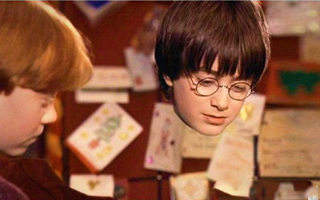 Invisibility: It’s not just for fictional magicians anymore.
Invisibility: It’s not just for fictional magicians anymore.
Scientists at the Pentagon have just published some fascinating (understatement) research on “temporal cloaking”.
As the team noted in Nature,
“To achieve spatial cloaking, the index of refraction is manipulated to flow light from a probe around an object in such a way that a ‘hole’ in space is created, and the object remains hidden. Alternatively, it may be desirable to cloak the occurrence of an event over a finite time period, and the idea of temporal cloaking has been proposed in which the dispersion of the material is manipulated in time, producing a ‘time hole’ in the probe beam to hide the occurrence of the event from the observer.”
Translated into lay-nerd terms, these scientists figured that light allows us to see objects, so to make an object or event invisible, all you have to do is keep the light from hitting it (a key component of other existing invisibility technology). And to keep it invisible for a period of time, you have to speed up the front end of a beam of light while slowing down the back end, creating a gap.
And these blessed souls have found a way to do precisely that.
Here’s a look at how the experiments went down:


Don’t expect to see invisibility “time holes” in your corner Army Navy surplus store any time soon, though. The experiments occurred inside a fiber-optic cable over the course of a few picoseconds. Still, the team noted in its conclusions, “These results are a significant step towards the development of full spatio-temporal cloaking.”
Stay tuned for Star Trekian cloaking devices, invisibility cloaks and other optical camo coming soon-ish to a top-secret military lab near you.
VentureBeat's mission is to be a digital town square for technical decision-makers to gain knowledge about transformative enterprise technology and transact. Learn More

